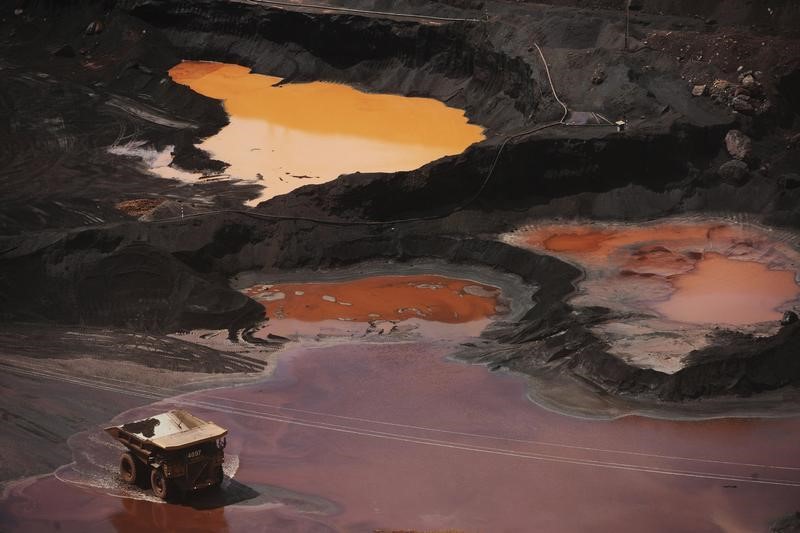By Zandi Shabalala and Sanjeeban Sarkar
LONDON/BENGALURU (Reuters) - Acacia Mining (L:ACAA) said it could not immediately pay the $300 million (£227.6 million) that its majority shareholder agreed to hand the government of Tanzania to settle a dispute that has crippled the company’s operations in the east African country.
Acacia's majority owner, Barrick Gold (TO:ABX), said on Thursday it had agreed with Tanzania for Acacia to hand over the money and a 16 percent stake in three of its mines and to split the "economic benefits" from those operations].
The agreement appeared to be the first step towards a resolution of a months-long stand-off that began in March, when the government banned exports of unprocessed minerals. In July, Acacia was served with a $190 billion bill for unpaid taxes, penalties and interest.
But Acacia's executives managers said on Friday that they had not been presented with any formal proposal and were seeking more clarity on the agreement.
"... The first comment I would make is that Barrick is equally aware of our balance sheet as we are," said Acacia's chief financial officer, Andrew Wray, on a call with analysts.
"We don't have the ability to make an upfront $300 million payment," he said, adding that a Barrick and government working group would need to come up with a solution.
Acacia shares traded in London tumbled 7 percent to 198 pence by 1218 GMT, partly erasing a 16 percent gain on Thursday after the agreement was announced. The shares have fallen over 60 percent since the disputes broke out.
Tanzania's largest gold miner, Acacia has been hurt by the country's sweeping changes in the industry. Those range from a ban on exports of unprocessed gold and copper to laws that increase state ownership of mines, based on the government's belief that it is not getting a fair share of Tanzania' mineral wealth.
As a result of the March export ban, Acacia reported on Friday that its core earnings, or EBITDA, fell 60 percent to $50 million in the third quarter. The company also cut spending by 33 percent and hopes to return to cash generation in early 2018.
Net cash in the third quarter slid 88 percent to $24 million from a year ago and its cash balance at the end of September was $95 million, down nearly 70 percent from a year earlier.
In an effort to stanch the flow of cash, Acacia shut underground operations at its Bulyanhulu mine, changed the mine plan at Buzwagi mine to produce more processed ore and bought put options on its gold.
Acacia, which was not directly involved in the talks with the government, said it would need to approve the deal with Barrick.
Acacia Chief Executive Brad Gordon said it was also agreed that a Tanzanian operating company would be formed and that a working group would start work to resolve Acacia's $190 billion tax bill, the export ban and flesh out how the $300 million would be paid.
"It is still very early in the process. There is a long way to go before any proposal is made to Acacia," Gordon said.
Acacia said gold production for the third quarter fell to 191,203 ounces, down 8.3 percent quarter on quarter, as it had reported on Oct. 12. Full-year production was maintained at 750,000 ounces, at a cost of $880 to 920 ounces.
Jefferies analysts said in a note that EBITDA came in below its estimates and consensus expectations, but investors would "focus on gaining more clarity following yesterday's announcements regarding a potential solution to the Tanzanian export ban".
